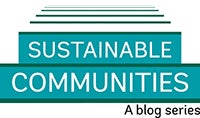Teams from the World Bank and the
Global Facility for Disaster Reduction and Recovery (GFDRR) have embarked on a 40-day, 10,000-km journey along the entire Indian coastline. The objective of this
"Road to Resilience" trip is to support the implementation of 6 coastal disaster management and climate resilience projects covering all 10 coastal states of India. Some of those projects aim to enhance resilience and mitigate the impact of future disasters, while others are intended to help the country recover from previous events such as Cyclone Phailin (2013) and Cyclone Hudhud (2014).
The "Road to Resilience" initiative is also a unique opportunity to raise awareness about risk mitigation and to interact more directly with local communities, who play a crucial role in preventing and responding to disaster.
In this video, Ede Ijjasz and Saurabh Dani take you on the road with them to showcase some of the work the World Bank is doing to protect India's costal states against natural hazards.
[[avp asset="/content/dam/videos/ecrgp/2018/jun-13/cyclone_risk_mitigation_and_recovery-_making_india_s_coastal_communities_safe_hd.flv"]]/content/dam/videos/ecrgp/2018/jun-13/cyclone_risk_mitigation_and_recovery-_making_india_s_coastal_communities_safe_hd.flv[[/avp]]
The "Road to Resilience" initiative is also a unique opportunity to raise awareness about risk mitigation and to interact more directly with local communities, who play a crucial role in preventing and responding to disaster.
In this video, Ede Ijjasz and Saurabh Dani take you on the road with them to showcase some of the work the World Bank is doing to protect India's costal states against natural hazards.
[[avp asset="/content/dam/videos/ecrgp/2018/jun-13/cyclone_risk_mitigation_and_recovery-_making_india_s_coastal_communities_safe_hd.flv"]]/content/dam/videos/ecrgp/2018/jun-13/cyclone_risk_mitigation_and_recovery-_making_india_s_coastal_communities_safe_hd.flv[[/avp]]




Join the Conversation